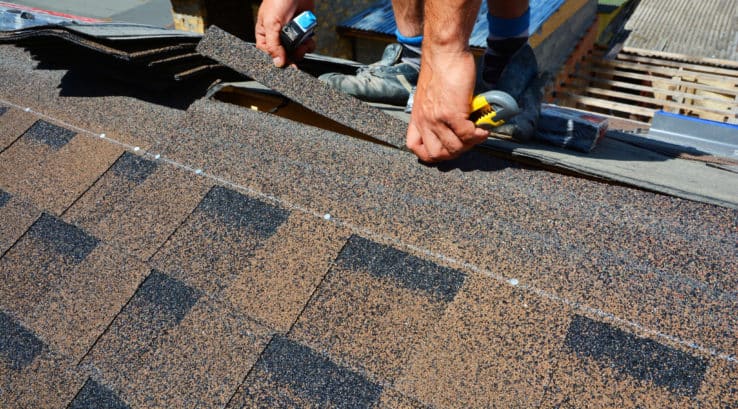Whether you’re searching for an optimal roofing material for your new home, or looking to replace your old roof, energy efficiency and lifespan are two key factors to that decision. Take a look at this guide to choosing the best roofing material for your home.
An energy efficient roof can save you money on your heating and air conditioning bill and provide a more comfortable atmosphere inside your home. Although it may seem obvious that a lighter color roof would repel heat better, this is not always the case. A black roof with an EnergyStar verification will be more efficient than a light-colored material that is made without energy efficiency in mind.
What is The Most Energy Efficient Roofing Material?
Here is a list of the most energy efficient and popular roofing materials, and the pros and cons of each.
Metal Roofing
Pros:
- Metal is a very durable, long-lasting option for roofing material. Metal roofs can last up to 65 years with little to no wear and tear, a huge asset over other materials like shingles that tend to corrode over time.
- Because of metal’s solar reflective properties, it will keep the heat out of your home and has the potential to save you as much as 25% on your air conditioning bill.
- Metal also comes with a wide variety of metal types, such as tin and aluminum,
- Environmentally friends due to the ability to use recycled content.
Cons:
- Lacks versatility when it comes to available colors
- Metal can run up to three times more than other roofing materials
- Metal can amplify noises such as rain and hail.
- Highest quality metal is important as some thinner metals can rust or dent.
Tile Roofing
Pros:
- If you live in a coastal area, tile roofing may be the option for you. Saltier air could cause rusting in metal roofing, but the heavy, durable nature of tile roofing helps it to withstand this factor.
- Often made of clay or concrete material, this type of material can be molded into many shapes and tinted to fit your personal taste.
- Because of its density, tile roofing helps to keep the outside climate from affecting the climate in your home.
Cons:
- Installation of tile roofing is pricey
- Tile roofs can require the addition of structural reinforcements to handle the weight of a tile roof.
- Tiles can be tough to work with and can break easily.
Asphalt Roofing
Pros:
- Asphalt comes in as one of the most affordable roofing materials.
- Asphalt roofs are available in a wide range of colors and textures.
- Asphalt roofs are easier to install than other materials keeping the cost low and the margin for installation error low as well.
- Asphalt shingles can withstand the Mid-Atlantic temperature and weather fluctuations.
Cons:
- Mildew/mold. Shaded areas of your asphalt roof can be prime spots for mold and mildew growth.
- Individual shingles can be susceptible to high winds. A yearly inspection of your roof is important to make sure missing shingles don’t cause greater roofing issues.
As always, adding insulation to your roofing will increase the energy efficiency of your home dramatically. It is important to aim for the most energy efficiency possible when making decisions regarding your roof, and the results will show in your air conditioning bill.
EnergyStar is the government approved symbol for housing products and materials to ensure you’re buying a product that is energy efficient. To research the efficiency of a housing material, you can visit https://www.energystar.gov/.
Choosing the Right Roofing Material
Choosing the roofing material for your home is important. Selecting a qualified, professional roofing company is what will guarantee your roof is expertly installed. Call Thompson Creek for your free roofing evaluation today.


